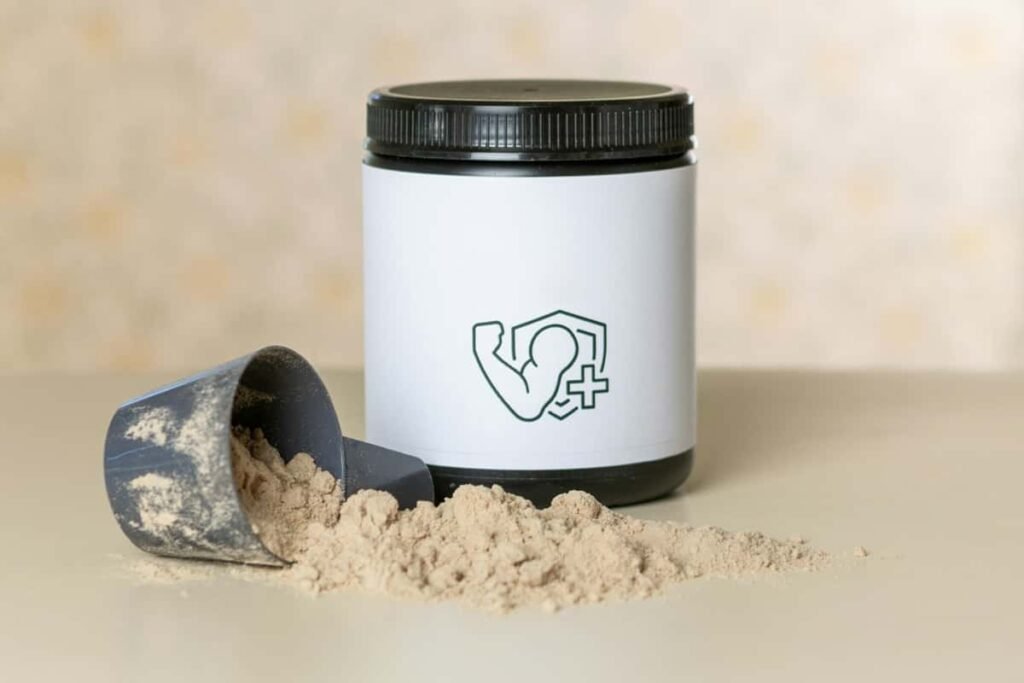13 Tips to Maximize Muscle Recovery. So, you just crushed that workout. Your muscles are screaming, your heart is still pounding, and you feel that satisfying burn. But don’t think the work is done. The real gains happen after the workout, during the crucial recovery period. Neglecting post-workout recovery is like building a house on a weak foundation – you’ll eventually encounter problems like plateaued progress, increased risk of injury, and chronic fatigue.
This blog post dives deep into the world of muscle recovery, providing 13 actionable tips to optimize your post-workout routine. These tips will allow you to rebuild stronger, faster, and more effectively. From nutrition and hydration to sleep and active recovery, we’ll cover all the essential bases.
13 Tips to Maximize Muscle Recovery

Why is Post-Workout Recovery So Important?
During intense exercise, your muscles experience microscopic tears, known as microtrauma. This is normal and, in fact, necessary for muscle growth (hypertrophy). But these tears need to be repaired and rebuilt to become bigger and stronger. This repair process consumes a significant amount of energy and resources from your body.
Effective post-workout recovery helps to:
- Repair Damaged Muscle Tissue: By providing the necessary nutrients and rest, you enable your body to repair the microtrauma efficiently.
- Replenish Energy Stores: Exercise depletes glycogen, your body’s primary energy source. Proper recovery helps replenish these stores, preparing you for your next workout.
- Reduce Muscle Soreness: Managing inflammation and promoting blood flow can minimize delayed onset muscle soreness (DOMS), the dreaded stiffness that hits you a day or two after a tough workout.
- Prevent Overtraining: Adequate recovery prevents your body from entering a state of overtraining, which can lead to fatigue, decreased performance, and an increased risk of injury.
- Optimize Muscle Growth: Ultimately, effective recovery leads to better muscle growth and strength gains over time.
Now, let’s delve into the 13 essential tips to maximize your muscle recovery:
1. Prioritize Protein Intake:
This is arguably the most crucial aspect of post-workout recovery. Protein provides the building blocks (amino acids) needed to repair and rebuild damaged muscle tissue. Aim to consume a high-quality protein source within 30-60 minutes after your workout. This is often referred to as the “anabolic window,” although the timeframe is more flexible than previously thought.

- What to Eat: Whey protein is a popular choice due to its rapid absorption rate. Other excellent options include casein protein (slower digesting, ideal for overnight recovery), egg whites, lean meats (chicken, turkey, fish), Greek yogurt, cottage cheese, and plant-based sources like tofu, tempeh, and beans.
- How Much to Eat: A general guideline is to consume 0.25-0.4 grams of protein per kilogram of body weight after a workout. For example, a 75 kg (165 lbs) individual would aim for 18.75-30 grams of protein.
2. Don’t Neglect Carbohydrates:
While protein is essential for muscle repair, carbohydrates play a vital role in replenishing glycogen stores, your body’s primary fuel source. Depleted glycogen levels can hinder muscle recovery and overall performance.

- What to Eat: Opt for fast-digesting carbohydrates immediately post-workout to quickly replenish glycogen. Good choices include white rice, potatoes, fruits (bananas, berries), and dextrose.
- How Much to Eat: The amount of carbohydrates you need depends on the intensity and duration of your workout. A general recommendation is to consume 0.5-1.0 grams of carbohydrates per kilogram of body weight after a workout, especially after intense or prolonged exercise.
- The Importance of Carbs with Protein: Combining carbohydrates with protein post-workout can enhance muscle protein synthesis and glycogen replenishment more effectively than consuming protein alone. The insulin spike triggered by carbohydrates helps transport amino acids into muscle cells.
3. Hydrate, Hydrate, Hydrate:
Dehydration can impair muscle function, slow down recovery, and even increase the risk of injury. Exercise causes fluid loss through sweat, so it’s crucial to replenish your fluids after a workout.

- How Much to Drink: Drink enough water to replace the fluid you lost during exercise. A good rule of thumb is to weigh yourself before and after your workout. For every pound lost, drink approximately 16-20 ounces of water.
- Electrolytes Matter: Sweat also contains electrolytes like sodium, potassium, and magnesium, which are essential for muscle function and nerve transmission. Consider replenishing these electrolytes with a sports drink or by adding electrolyte tablets to your water.
- Beyond Water: Coconut water is a natural source of electrolytes and can be a refreshing post-workout beverage.
4. Embrace Active Recovery:
While rest is essential, complete inactivity can sometimes hinder recovery. Active recovery involves low-intensity activities that promote blood flow to the muscles, aiding in the removal of metabolic waste products and reducing muscle soreness.

- Examples of Active Recovery: Light cardio like walking, jogging, cycling, or swimming can be effective. Gentle stretching, yoga, or foam rolling can also promote muscle recovery and flexibility.
- Duration and Intensity: Keep the intensity low and the duration relatively short (20-30 minutes). The goal is to increase blood flow without placing further stress on the muscles.
5. Prioritize Sleep:
Sleep is when your body does the majority of its repair and rebuilding. During sleep, your body releases hormones like growth hormone, which is crucial for muscle growth and recovery.

- Aim for 7-9 Hours of Quality Sleep: Most adults need at least 7-9 hours of sleep per night. Prioritize sleep hygiene by creating a relaxing bedtime routine, maintaining a consistent sleep schedule, and ensuring your bedroom is dark, quiet, and cool.
- Sleep Deprivation and Recovery: Lack of sleep can significantly impair muscle recovery, increase inflammation, and even reduce testosterone levels, hindering muscle growth.
6. Manage Stress Levels:
Chronic stress can negatively impact muscle recovery by increasing cortisol levels, a stress hormone that can break down muscle tissue and inhibit muscle growth.

- Stress Management Techniques: Incorporate stress-reducing activities into your daily routine, such as meditation, deep breathing exercises, yoga, spending time in nature, or engaging in hobbies you enjoy.
- Mindfulness Practices: Practicing mindfulness can help you become more aware of your stress levels and develop coping mechanisms.
7. Consider Supplementation (With Caution):
While a balanced diet should be your primary source of nutrients, certain supplements can potentially aid in muscle recovery. However, it’s crucial to consult with a healthcare professional or registered dietitian before taking any supplements.

- Creatine: Creatine is a well-researched supplement that can enhance muscle strength and power, as well as improve muscle recovery.
- Branched-Chain Amino Acids (BCAAs): BCAAs may help reduce muscle soreness and fatigue, especially after intense workouts. However, they are often unnecessary if you’re already consuming adequate protein.
- Glutamine: Glutamine is an amino acid that may help reduce muscle soreness and improve immune function.
- Omega-3 Fatty Acids: Omega-3 fatty acids have anti-inflammatory properties and may help reduce muscle soreness and improve recovery.
8. Foam Rolling and Massage:
Foam rolling and massage can help release muscle tension, improve blood flow, and reduce muscle soreness.

- Foam Rolling Techniques: Focus on areas that feel tight or sore, spending 30-60 seconds on each area. Avoid rolling directly over joints or bones.
- Massage Therapy: Consider scheduling a massage with a qualified massage therapist to help release muscle tension and promote recovery.
9. Contrast Therapy (Hot and Cold):
Contrast therapy involves alternating between hot and cold exposure, which can help reduce inflammation and improve blood flow.

- Methods of Contrast Therapy: You can use hot and cold showers, ice baths, or contrast water immersion.
- Procedure: Typically, you would start with a few minutes of hot exposure (e.g., a warm shower) followed by a minute or two of cold exposure (e.g., a cold shower). Repeat this cycle several times.
10. Pay Attention to Delayed Onset Muscle Soreness (DOMS):
DOMS is that delayed muscle soreness that typically peaks 24-72 hours after a workout. While it’s a normal response to exercise, it can be uncomfortable.

- Managing DOMS: Active recovery, stretching, foam rolling, and massage can help alleviate DOMS. Avoid overtraining or doing the same intense workout while you’re still experiencing significant DOMS.
- Prevention is Key: Gradually increase the intensity and duration of your workouts to minimize the likelihood of severe DOMS.
11. Nutritional Timing Matters Throughout the Day:
Post-workout nutrition is critical, but so is your overall diet. Consuming a balanced diet rich in protein, carbohydrates, and healthy fats throughout the day will support muscle recovery and growth.

- Focus on Whole Foods: Prioritize whole, unprocessed foods like fruits, vegetables, lean protein sources, and complex carbohydrates.
- Spread Protein Intake Evenly: Distribute your protein intake evenly throughout the day to maximize muscle protein synthesis.
12. Cool Down Properly After Your Workout:
Don’t just stop exercising abruptly. A proper cool-down allows your heart rate and breathing to gradually return to normal and can help reduce muscle soreness.

- Cool-Down Activities: Include 5-10 minutes of light cardio, such as walking or cycling, followed by static stretching.
- Static Stretching: Hold each stretch for 20-30 seconds, focusing on the muscles you worked during your workout.
13. Listen to Your Body:
This is perhaps the most important tip of all. Pay attention to your body’s signals and adjust your recovery strategies accordingly. If you’re feeling fatigued, sore, or experiencing pain, take a rest day or reduce the intensity of your workouts. Overtraining can lead to injury and hinder your progress.

In Conclusion:
Optimizing muscle recovery is essential for maximizing your fitness gains, preventing injuries, and maintaining long-term health. By incorporating these 13 tips into your post-workout routine, you can ensure that your body has the resources it needs to repair, rebuild, and grow stronger. Remember, consistency is key. Make these practices a regular part of your fitness regimen, and you’ll reap the rewards of a well-recovered and high-performing body. Now go forth and conquer your next workout, knowing you have the tools to recover effectively!
This was 13 Tips to Maximize Muscle Recovery: Post-Workout and Beyond
- 13 Must-Do Holiday Traditions for Families: Building Memories that Last a Lifetime
- Exploring the 17 Best Ecotourism Destinations in the World
- Top 19 Gardening Tips for Beginners: Start Your Best Garden Today!
- The 13 Best Tablets for Creatives in 2025 | Latest Models
- मृत्यु के बाद जीवन | Mrityu Ke Baad Jeevan
That’s all about 13 Tips to Maximize Muscle Recovery: Post-Workout and Beyond and these Tips to Maximize Muscle Recovery will help you to get maximum.
FAQs on Tips to Maximize Muscle Recovery
Here’s a list of 30 frequently asked questions (FAQs) about tips to maximize muscle recovery, along with brief answers for each:
- Why is muscle recovery important?
- Muscle recovery is crucial for repairing tissue damage, replenishing energy stores, and preparing muscles for future workouts.
- How long does muscle recovery take?
- Recovery time varies based on factors like workout intensity, individual fitness levels, and nutrition, typically ranging from 24 to 72 hours.
- What role does sleep play in muscle recovery?
- Sleep is vital for recovery as it allows the body to repair muscles and synthesize hormones like growth hormone, which aids in muscle growth.
- How much sleep do I need for optimal recovery?
- Most adults need 7-9 hours of quality sleep per night for optimal recovery.
- Should I stretch before and after workouts?
- Yes, dynamic stretching before and static stretching after workouts can help improve flexibility and reduce soreness.
- What types of nutrition support muscle recovery?
- A diet rich in protein, healthy fats, and carbohydrates can enhance recovery by repairing muscle tissue and refueling energy stores.
- How much protein should I consume for muscle recovery?
- Aim for 20-30 grams of protein within 30 minutes post-workout, depending on body weight and goals.
- Are supplements necessary for muscle recovery?
- Not necessarily; a balanced diet can provide the nutrients needed. Some may benefit from supplements like protein powder or BCAAs.
- What role does hydration play in recovery?
- Staying hydrated is key for optimizing performance and recovery; dehydration can hinder muscle repair and increase fatigue.
- Is active recovery effective?
- Yes, low-intensity activities (such as walking or gentle cycling) can promote blood circulation and aid in recovery.
- What are foam rollers, and how do they help?
- Foam rollers are tools used for self-myofascial release, which can relieve muscle tightness, improve blood flow, and reduce soreness.
- How can I manage muscle soreness?
- Techniques like gentle stretching, massage therapy, ice packs, and heat therapy can help alleviate soreness.
- Should I take rest days?
- Yes, rest days are essential to allow muscles to recover and prevent overtraining.
- How can I tell if I need more recovery time?
- Signs include persistent fatigue, decreased performance, irritability, and increased soreness.
- Do I need to change my workout routine for better recovery?
- Yes, varying intensity and incorporating different types of exercises can help prevent burnout and promote recovery.
- How often should I train the same muscle group?
- Allow 48 hours before targeting the same muscle group again to give adequate recovery time.
- Is ice therapy effective for recovery?
- Ice can help reduce swelling and numb acute pain, making it useful immediately after intense workouts.
- What about heat therapy?
- Heat can improve blood circulation and relieve stiffness, making it beneficial for chronic muscle pain.
- What role do antioxidants play in recovery?
- Antioxidants may help reduce inflammation and muscle damage post-exercise, aiding recovery.
- Can yoga aid in muscle recovery?
- Yes, yoga enhances flexibility, reduces stress, and improves blood flow, all of which can support recovery.
- What’s the connection between stress and muscle recovery?
- High stress levels can hinder recovery by increasing cortisol, which negatively impacts muscle repair processes.
- Should I listen to my body during recovery?
- Absolutely; pay attention to how you feel and adjust your routine based on your body’s signals.
- Are there specific foods that enhance recovery?
- Foods like salmon, eggs, quinoa, sweet potatoes, and leafy greens are great for recovery due to their nutrient profiles.
- How can timing my meals impact recovery?
- Consuming a combination of protein and carbs shortly after workouts can maximize muscle recovery.
- Is massage therapy beneficial for recovery?
- Yes, massage can help reduce muscle tension, improve circulation, and promote relaxation.
- What is the R.I.C.E. method, and how does it work?
- R.I.C.E. stands for Rest, Ice, Compression, and Elevation, a method used to reduce inflammation and promote healing for acute injuries.
- Can overtraining affect muscle recovery?
- Yes, overtraining can lead to prolonged recovery times and increased risk of injury.
- How does age affect muscle recovery?
- As we age, recovery tends to slow down due to hormonal changes and a decrease in muscle elasticity.
- Should I consider professional advice for recovery strategies?
- Consult a fitness trainer or healthcare professional for personalized recovery strategies tailored to your needs.
- What’s the best overall approach to maximize recovery?
- Combining proper nutrition, adequate hydration, sufficient rest, varied workouts, and active recovery methods is the best approach to enhance muscle recovery.
This was questiions and answers based on Tips to Maximize Muscle Recovery. These were the very important Tips to Maximize Muscle Recovery. So lets use these Tips to Maximize Muscle Recovery and see the benefits and let me know any thing about these Tips to Maximize Muscle Recovery. Thank you for reading theese Tips to Maximize Muscle Recovery
